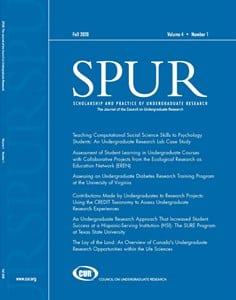Vignette
Developing a Virtual Undergraduate Research Symposium in Response to COVID-19 Disruptions: Building a Canvas-Based Shared Platform and Pondering Lessons Learned
Sophie Pierszalowski, Greg Heinonen, Bethany Ulman, and Daniel López-CevallosSPUR (2020) 4 (1): https://doi.org/10.18833/spur/4/1/10
More Articles in this Issue
Member Content
No posts found


